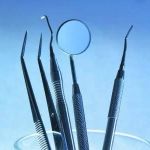What Causes Bad Breath Even After Brushing Your Teeth? Understanding and Solutions
- 1. Understanding Bad Breath
- 2. Why Does Bad Breath Persist Even After Brushing?
- 3. Common Causes of Persistent Bad Breath
- 4. How to Fix Bad Breath Even After Brushing
- 5. Real-Life Stories of Overcoming Bad Breath
- 6. Explore Dental Care Solutions with Dentistry Toothtruth
1. Understanding Bad Breath
Bad breath, or halitosis, can be a frustrating and embarrassing issue, especially when it persists even after brushing your teeth. It is often a sign of an underlying issue, whether it's related to oral hygiene, diet, or a health condition. While regular brushing helps keep your mouth clean, other factors may contribute to bad breath that brushing alone can't solve. Understanding what causes bad breath is the first step toward finding a solution.
2. Why Does Bad Breath Persist Even After Brushing?
There are several reasons why bad breath might persist despite brushing your teeth regularly. Brushing only addresses the surface of your teeth and gums, so it may not be enough to tackle other causes of bad breath. While it’s important to clean your teeth, bad breath can also result from factors like bacteria in your mouth, underlying medical conditions, or lifestyle habits.
3. Common Causes of Persistent Bad Breath
Some of the most common causes of persistent bad breath, even after brushing, include:
Poor Oral Hygiene
If you’re not brushing and flossing effectively, food particles can remain in your mouth and contribute to bad breath. Bacteria thrive on these particles, producing sulfur compounds that cause the unpleasant smell. It’s important to brush your teeth, gums, and tongue thoroughly and floss daily to remove trapped food particles.
Dry Mouth
Dry mouth occurs when your mouth doesn’t produce enough saliva. Saliva is essential for cleaning the mouth and removing particles that cause bad breath. Conditions like dehydration, certain medications, or mouth breathing can lead to dry mouth, causing bad breath even after brushing.
Dietary Choices
What you eat also plays a significant role in the freshness of your breath. Foods like garlic, onions, and spicy dishes can cause bad breath. These foods contain strong-smelling compounds that can linger even after brushing your teeth. Additionally, consuming sugary foods and drinks can fuel bacteria that cause bad breath.
Underlying Health Conditions
Sometimes, persistent bad breath may be a sign of an underlying health issue, such as gum disease, respiratory infections, acid reflux, or even diabetes. Conditions like these require professional diagnosis and treatment to address the root cause of the bad breath.
4. How to Fix Bad Breath Even After Brushing
There are several steps you can take to address persistent bad breath:
Improve Your Oral Hygiene Routine
Ensure that you’re brushing your teeth properly—at least twice a day—for two minutes each time. Use toothpaste that contains fluoride and a toothbrush with soft bristles. Don’t forget to clean your tongue, as it can harbor bacteria. Flossing daily is essential for removing food particles between your teeth.
Stay Hydrated
Drinking plenty of water helps keep your mouth moist and flushes out food particles. If you suffer from dry mouth, try chewing sugar-free gum or using a saliva-stimulating mouthwash to keep your mouth hydrated.
Visit Your Dentist Regularly
If you’ve tried improving your oral hygiene but still struggle with bad breath, it’s time to visit a dentist. Your dentist can identify and treat issues like gum disease, cavities, or infections that may be contributing to bad breath.
5. Real-Life Stories of Overcoming Bad Breath
Many people have successfully managed their bad breath by addressing its underlying causes. For example, Jessica struggled with bad breath despite brushing regularly. After visiting her dentist, she was diagnosed with mild gum disease. By following a comprehensive oral care plan and using a mouthwash designed for sensitive gums, Jessica noticed significant improvement in her breath. Another individual, Steve, found that drinking more water throughout the day and avoiding acidic foods helped him overcome persistent bad breath.
6. Explore Dental Care Solutions with Dentistry Toothtruth
If you’re struggling with bad breath and need expert advice on choosing the right dental products, Dentistry Toothtruth offers solutions tailored to your needs. From toothpaste to mouthwashes that target specific causes of bad breath, we provide the best options for fresh breath and improved oral health. Click here to explore our dental care solutions for bad breath.







 Downtown Dental and Implants of Oswego, Inc.5.0 (229 review)
Downtown Dental and Implants of Oswego, Inc.5.0 (229 review) Michael Tabbah, D.M.D.5.0 (2 review)
Michael Tabbah, D.M.D.5.0 (2 review) Glendale Holistic Dentistry - Los Angeles Dentists Group4.0 (19 review)
Glendale Holistic Dentistry - Los Angeles Dentists Group4.0 (19 review) Fontana Dental Clinic4.0 (470 review)
Fontana Dental Clinic4.0 (470 review) Dental365 - Bethpage4.0 (456 review)
Dental365 - Bethpage4.0 (456 review) Yonkers Avenue Dental - An Affiliate of The Smilist4.0 (783 review)
Yonkers Avenue Dental - An Affiliate of The Smilist4.0 (783 review) The Importance of Oral Health Education During Pregnancy for a Healthy Pregnancy
The Importance of Oral Health Education During Pregnancy for a Healthy Pregnancy Best Tips for Brushing Your Teeth Properly for Healthy Gums: Essential Techniques for Oral Health
Best Tips for Brushing Your Teeth Properly for Healthy Gums: Essential Techniques for Oral Health Why Skipping Dental Checkups Can Lead to Bigger Oral Health Problems
Why Skipping Dental Checkups Can Lead to Bigger Oral Health Problems Advantages of Porcelain Dental Restorations
Advantages of Porcelain Dental Restorations How Can Diabetes Cause Tooth and Gum Problems? Preventing and Managing Oral Health Issues
How Can Diabetes Cause Tooth and Gum Problems? Preventing and Managing Oral Health Issues Healthy Habits for Promoting Good Oral Health and Hygiene: Tips for a Healthy Smile
Healthy Habits for Promoting Good Oral Health and Hygiene: Tips for a Healthy Smile